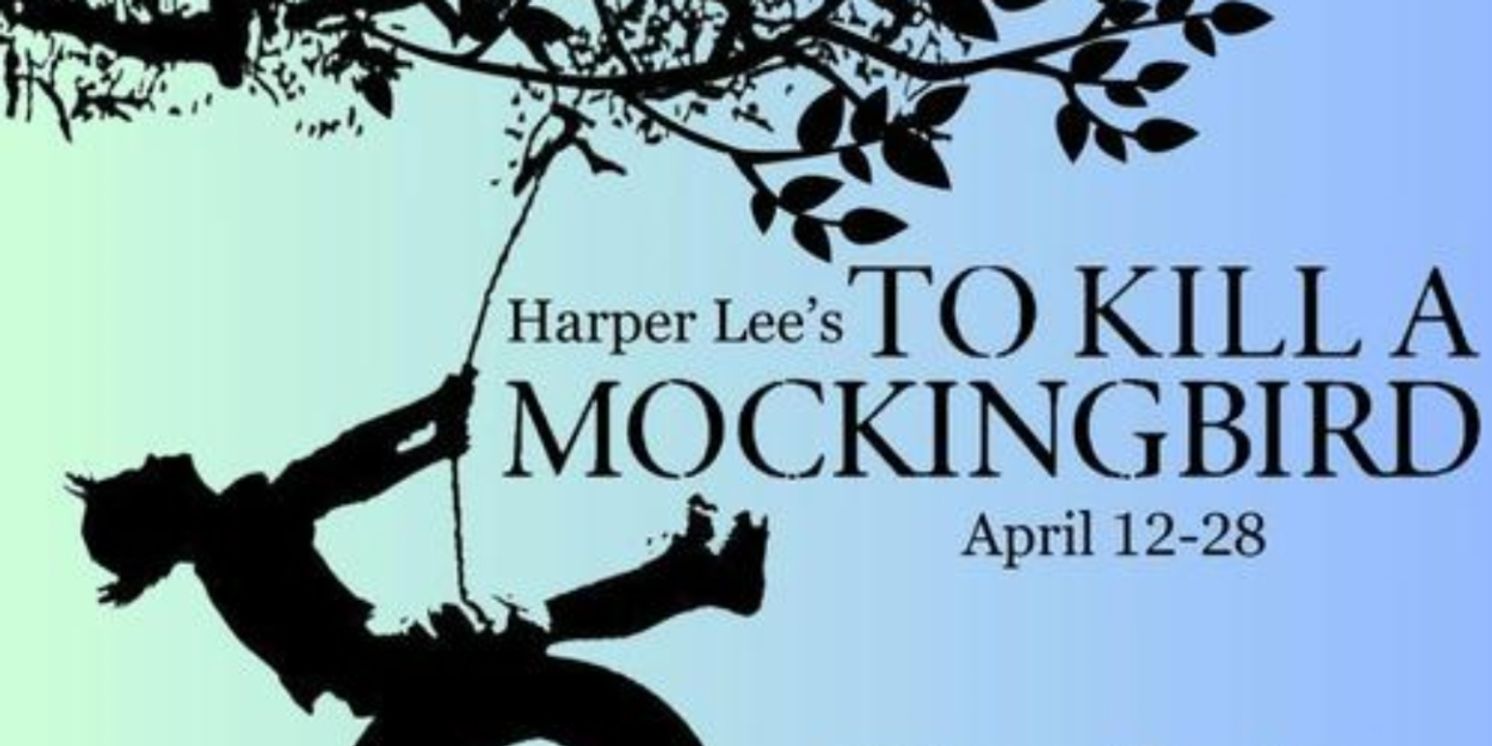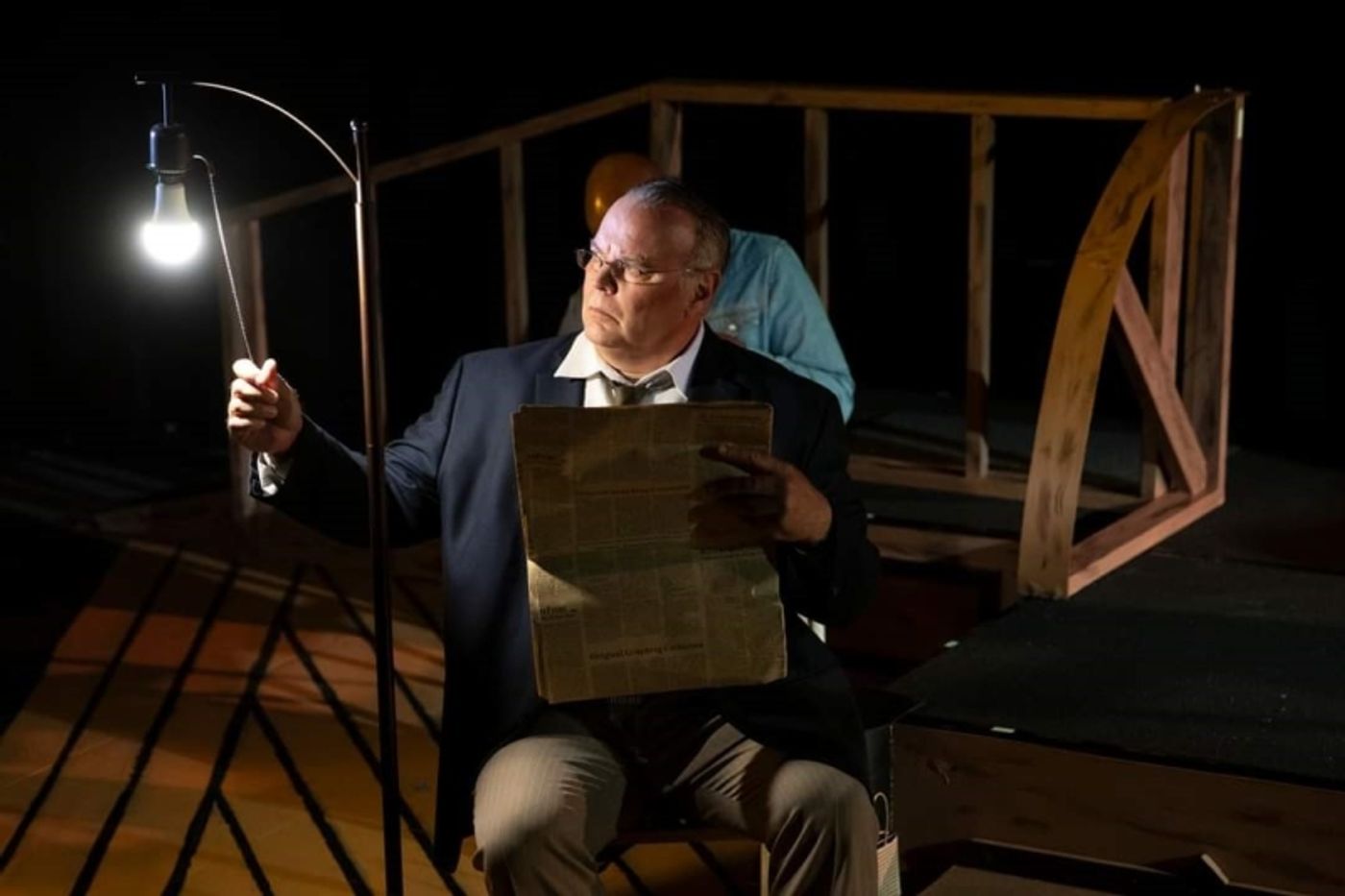Review: TO KILL A MOCKINGBIRD at Desert Theatreworks
A CHILLINGLY POWERFUL MORALITY PLAY SPEAKING OF OUR PAST AND PRESENT

When author Harper Lee published her debut entry as a novelist “To Kill a Mockingbird” in 1960, the initial critical responses were mixed. The work arrived on book shelves just before the peak of the civil rights movement of the late 1960s and while she was praised by many critics for her sensitive treatment of a child’s awakening to racism and prejudice, others criticized the novel’s tendency to “sermonize”. However, her novel grasped the public’s imagination, reflecting a world many were being introduced to for the first time through that new medium: television. In its first year it sold about 500,000 copies. A year after the publication of the novel, Lee was awarded a Pulitzer Prize for fiction. So much for the critics! In 1962, the film version of “Mockingbird” starring Gregory Peck as Atticus Finch was released and cemented that image of the principled small-town lawyer in the minds of multiple generations to come. Playwright Christopher Sergel dramatized the novel in 1970 for the stage, where it has been a drama that has visited many stages world-wide ever since.

This version of the “To Kill a Mockingbird” story is currently onstage at Desert Theatreworks through April 28th at the Indio Performing Arts Center. Under the wise direction of Daniela Ryan, the story is smartly staged at the venue’s lesser used “Black Box” auditorium. The stage is floor level, without the raised platform they have with their other more utilized theatre spaces. With the built-in stadium seating of this venue, the audience gets the feeling of being in the raised gallery above the court room of the Marbury courthouse (or perhaps in the jury box itself). Ms. Ryan kept a tight lease on the pacing, which was fluid and deftly handled, using every entrance points she had available in the more condensed setting to great effect. While she kept the flow of the story moving, she also encouraged the players to react and interact outside of the script in a fully naturalistic (but not distracting) way which is not an easy balance to achieve. Steve Giboney’s set design was simple and appropriate in its respect of space and the required utility of the play. Nick Wass’ lighting design was effective with its ever-changing locales, moods and time of day. Company Artistic Director Lance Phillips provided a cohesive sound plot that provided an acoustic backdrop that set time, place and energy. Paula Bailey’s costumes felt time and world appropriate for this dusty little corner of 1930’s Alabama, with quick flourishes of costume shift with a strategic shawl or coat. Technical aspects of the work were seamlessly executed and never broke the flow of the action. An important distinction in a run time of 2 ½ hours!

The narrative is written from the point of view of the young protagonist, Jean Louis “Scout” Finch, played with remarkable grace by Tess Phillips. With the weight of full production’s course falling on the shoulders of a young performer (not to mention a work of such depth, complexity and emotional stakes) overwhelming would seem an understatement to most. Not Miss Phillips! A veteran award-winning actress for many seasons, her take on Scout is mercurial and empathetic with a nose for trouble. Her range of emotional maturity is remarkable in one so young. Always coming from a center-point of being her father’s daughter and having a willingness to stand up for what is right, Miss Phillips’ creation shows strength and fortitude that is breathtaking to watch. Even her vocal affectation felt very “down home”. My only critique in such an excellent portrayal would be to slow the pace of speech a bit more, Southerners are slow talkers, which is an art in and of itself. Her Father, the heroic Atticus Finch, is herein played by Michael Pacas. Played with a world-weary guise, this Atticus appears to be shouldering the weight of the world on his shoulders. Genteel, wise and forbearing, Mr. Pacas’ brings the character to life with so much soul. Like the exhausted soldier in the trenches, knowing he has to charge the boundary and most likely won’t survive, this Atticus Finch shoulders his weapon (in this case, the truth) and gives his all, even in the knowledge that the sacrifice might be in vain. Mr. Pacas’ defense soliloquy is gripping, heart rending and painfully honest. This is who you would want in your corner if the chips were stacked against you. In the role of Jeremy “Gem” Finch, the eldest son, is Reed Potter. Mr. Potter is earnest and a great older brother doing his best to keep up with Scout (good luck!) The young trio is completed with the addition of Charles ”Dill” Baker Harris, brought to life by Nicolai Silva. This trio read as likely friends and partners in crime. I appreciated that they developed their characters with an understanding that they aren’t kids of today, but of the 1930’s, surviving in a world suffering from great need yet not losing their soul to it. “Dill” is a bit of a tale-teller and not past the occasional fib, Mr. Silva added a fun odd man out to this pack of trouble. Kimberly A Cole’s portrayal of housekeeper Calpurnia was lovely. Strong, no nonsense, she is the only mother figure the kids have. You could sense the love she has for these children, as if they were her own. Seeing her amongst her community in the courthouse scenes allowed her to break from the maternal into a fully realized woman of color in an age and place where her options are narrow and the stakes are great.

Eddie Stephen’s incarnation as Tom Robinson, the accused black man whose back is against the wall in this piece, was a revelation. His portrayal of the terrified, simple man falsely accused, was chillingly real and emotionally brutal. With a shriveled hand and armed only with the truth no one wants to hear, it cannot only be attributed to our collective past, but also to our very real present. His accuser, the malevolent Bob Ewell, here played with burning intensity by Ron Young, is the villain that angers and scares you. The scare comes with how hateful and petty a man can be and the anger from the realization these people actually exist in our own communities today. Mr. Young’s portrayal was realistic, primal and almost gleeful in his most hideous moments. His role is haunting and stays with you. Ewell’s browbeaten daughter Mayella Ewell played here with furtive fever by Renee Bourgeau, is as much a victim in this tragic tale as Tom Robinson himself. I use the term “Furtive fever” because half of her performance, for me at least, was watching her physicality in unspoken moments: the visible shrinking back from her father’s attention, her closed off, tremulous attempts at self-preservation, her flashes of anger when telling the lies her Pa demands. It is tragic and all too real. Ms. Bourgeau’s creation was like watching a boiling kettle, knowing any moment it was going to explode. The neighborhood ladies of Maybury included the bigotedly opinionated Mrs. Dubose, played here by June August, the know-it-all Stephanie Crawford, portrayed by Christine Gold and the “Miss” Maudie Atkinson, played by Shirley LeMaster. These ladies provide much of the “color commentary” in the community and their performances carried the underlying ethos of the town in their interactions with our main characters. In this they were quite effective and were each someone audiences could recognize in their own experiences. The rest of the cast represented the men of the town: Shel Safir as Heck Tate, Herb Schultz as Judge Taylor, Fuzz Edwards as Walter Cunningham, Paul Crane as Mr. Gilmer, Kevin Hayles and his son Aiden Hayles played the Reverend Sykes and son and the enigmatic Boo Radley was Frank Catale. Each filled Director Ryan’s universe with great heart, righteous indignation and a very real slice of humanity.
A work like “To Kill a Mockingbird” is always a tricky endeavor, setting the tone just right to avoid being preachy and yet not shying away from the evils that frame this tale, Desert Theatreworks and this cast have done that with great aplomb. Lovers of good drama, get your tickets now. You will not want to miss this. It is a great refresher of something we all should practice, “You never really understand a person until you consider things from his point of view—until you climb into his skin and walk around in it.” “To Kill a Mockingbird” continues its run Thursdays, Fridays, and Saturdays at 7:30 p.m.; and Sundays at 2:00 p.m. through Sunday, April 28, 2024. Tickets can be purchased at www.dtworks.org or by calling (760) 980-1455. The production plays at the Indio Performing Arts Center, 45175 Fargo Street, Indio.
Reader Reviews
Videos

